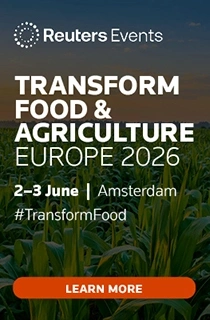
- Industry news
Industry news
- Category news
Category news
- Reports
- Key trends
- Multimedia
- Journal
- Events
- Suppliers
- Home
- Industry news
Industry news
- Category news
Category news
- Reports
- Key trends
- Multimedia
- Events
- Suppliers
Tesco and WWF launch ground-breaking measure to map environmental impact of food production

12 Dec 2019 --- Tesco is teaming up with World Wide Fund for Nature (WWF) to map the environmental impact of food production in what is said to be a “ground-breaking measure” that will track some samples of regularly purchased products. The partnership between the retailer and WWF calls on the food industry to provide consumers and stakeholders with consistent sustainability data to understand the effects of some of the UK’s most popular foods have on the environment.
The Tesco and WWF Sustainable Basket Metric will track the environmental impact of some products – such as bananas, salad tomatoes, clementines, “Easy peeler,” Maris piper potatoes, blueberries, iceberg lettuce, chicken, eggs, salmon, steak mince as well as a range of packaged foods – against key sustainability criteria, including climate change, deforestation, as well as food and packaging waste.

Tesco and WWF will run an initial full assessment against the metric early next year and publish the results. The partnership will also then be able to confirm a date by which it believes the target of halving the impact of the average UK shopping basket can be reached, with 2030 set as a potential ambition.
The two organizations are working together on several sustainability projects, which will contribute to their aim, including soil health and water usage programs in UK agriculture. They are also working toward the production of zero-deforestation commodities, such as soy in Tesco’s supply chains.
“We want to provide customers with good quality, affordable food that is produced in a sustainable way. To help us achieve this, we’ve partnered with WWF with the goal of halving the environmental impact of the average UK shopping basket,” says Tesco Group CEO, Dave Lewis.
“Throughout our partnership, we’ll be carrying out industry-leading work to make food production more sustainable, including sourcing commodities like soy and palm oil from verified zero-deforestation areas and improving soil health and water usage on farms in the UK. Working together, we can help to ensure the natural environment is protected for future generations,” he adds.
It has become increasingly clear that urgent action is needed to tackle the rapid onset of climate change and its causes in every sector of our global society. The food industry is a significant contributor to climate change with 20 percent of total direct carbon emissions globally coming from food and agriculture, 30 percent when you factor in land-use change.
The sector is also responsible for almost 60 percent of global biodiversity loss and around 70 percent of all freshwater withdrawn is used for agricultural irrigation, which in many cases has a major impact on water flow.
Last November, an in-depth report from the InterAcademy Partnership (IAP) called for a total transformation of how systems operate as agriculture and consumer choices are major factors driving “disastrous climate change.” It said global food systems are failing and urgently need to be turned around to avoid catastrophic climate change.
This closely followed the Intergovernmental Panel on Climate Change (IPCC), issuing a very stark warning in October 2018. The study said that a rise of more than 1.5°C is risking the plant’s livability and this could be exceeded by 2030 unless drastic steps are taken immediately.
“Food production is at the core of many of the environmental crises facing our planet – it’s the leading cause of tropical deforestation and is responsible for 24 percent of the world’s greenhouse gases,” adds Tanya Steele, CEO at WWF UK. “The launch of the Sustainable Basket Metric will enable Tesco to fully understand the end-to-end sustainability impact of some of the most popular foods. We want other retailers to take a similar approach and come together to ensure a more sustainable approach to food production.”
Tesco has committed to updating its progress towards its aim of a 50 percent reduction in the environmental impact of the average UK shopping basket in its annual Little Helps Plan report.
How does the basket metric work?
Each product’s impact will be tracked against several relevant environmental criteria. The seven criteria have been selected due to their scope and global impact, their irreversibility and urgency, as well as their direct impact on issues such as climate change, notes Tesco.
While all seven criteria are critical to making the average UK shopping basket more sustainable, some have a greater environmental impact than others, so they have been weighted accordingly, namely climate change (25 percent), deforestation (20 percent), sustainable diets (15 percent), sustainable agriculture (12 percent), marine sustainability (10 percent), food waste (10 percent) and packaging waste (8 percent).
Tesco plans to use the Sustainable Basket Metric across more of its products, with the criteria applicable to a wide range of products not included in the basket. For example, the criteria related to lettuce, such as sustainable agriculture and food waste – and any work to tackle them – will also relate to other similar vegetables such as spinach, chard and other salad leaves.
By Gaynor Selby









